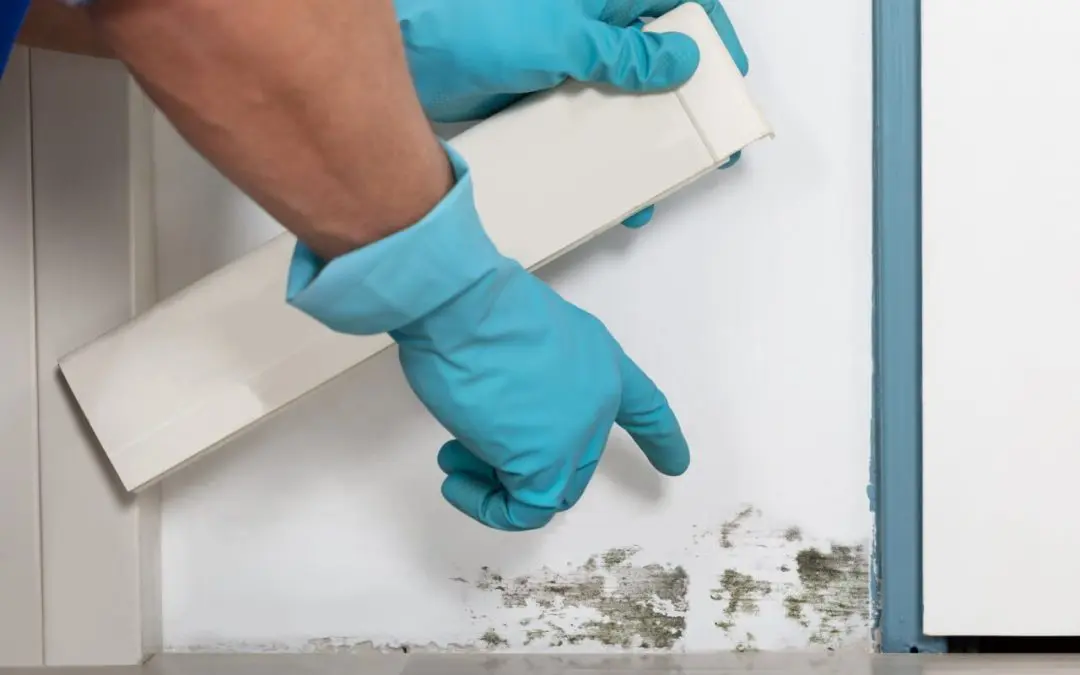While some mold is harmless, certain types pose health risks and cause property damage. That’s why mold inspections are crucial, whether you’re a homeowner, a prospective buyer, or simply concerned about the indoor air quality in your home.
What is Mold, and Why is it a Problem?
Mold is a fungus that thrives in damp, dark, and humid environments. It reproduces through spores that travel through the air and land on walls, ceilings, carpets, and furniture.
While some mold exposure may cause minor irritations like allergies and respiratory issues, certain types of mold produce harmful toxins called mycotoxins. These toxins can have more serious health effects, especially for individuals with weakened immune systems, the elderly, and children.
Signs You Might Have a Mold Problem
A damp, earthy smell is often a strong indicator of mold growth. Look for discoloration on walls, ceilings, or other surfaces. This can appear as black, green, gray, or white spots or patches. Water stains on walls, ceilings, or floors can be a sign of past water damage, creating the perfect environment for mold growth. If you or your family members are experiencing persistent respiratory problems, such as coughing, sneezing, or difficulty breathing, it could be related to mold exposure.
The Importance of a Professional Mold Inspection
While you might be able to spot some visible mold, a professional mold inspection goes much deeper. Experienced home inspectors are trained to identify hidden mold, which can grow in hard-to-reach areas like behind walls, under floors, and within HVAC systems, where it may be difficult to detect without specialized equipment. They can also determine the source of moisture, which is crucial for effective mold remediation. A professional can assess the severity of the problem and provide expert advice for mold remediation and prevention strategies.
What Happens During Mold Inspections?
A typical mold inspection involves thoroughly examining the property, including checking for visible signs of mold, inspecting areas prone to moisture problems, such as basements, crawl spaces, bathrooms, and kitchens, and assessing the HVAC system for signs of mold growth within the ductwork. The inspector will also identify potential moisture sources, including leaky pipes, roof leaks, and inadequate ventilation. In some cases, the inspector may also recommend additional testing, such as air quality tests or surface sampling, to confirm the presence and type of mold.
Preventing Mold Growth
The best way to deal with mold is to prevent it from growing in the first place. Fix leaks promptly, use exhaust fans in bathrooms and kitchens, and ensure proper ventilation throughout the home. Control humidity using dehumidifiers in damp areas and keep humidity levels below 60%. Regularly clean and disinfect surfaces to prevent mold spores from settling. If you experience water damage, address it immediately to prevent mold growth.
Understanding the risks associated with mold and taking proactive steps to prevent its growth will help you create a healthier and safer home environment for yourself and your family.
FAQs About Mold Inspections
How much does a mold inspection cost?
The cost of a mold inspection varies depending on the size of the property, the extent of the inspection, and the inspector’s experience.
Do I need a separate mold inspection, or can it be included in a home inspection?
While some home inspections may include basic mold checks, a dedicated mold inspection provides a more in-depth assessment.
What should I do if mold is found in my home?
Contact a qualified mold remediation professional to address the issue safely and effectively if mold is found.
Can I do my own mold testing?
While home mold test kits are available, they may not provide accurate or reliable results. It’s always best to consult with a professional for accurate mold assessment.
What are the health effects of mold exposure?
Mold exposure can cause various health issues, ranging from irritations to more serious problems. Common symptoms include:
Allergic reactions: Sneezing, runny nose, itchy eyes, skin rashes
Respiratory problems: Coughing, wheezing, difficulty breathing, asthma attacks
Other symptoms: Headaches, fatigue, and, in some cases, more severe health effects.
HomeSpec offers inspections, including mold inspections, to customers in North Mississippi and Southwest Tennessee. If you’re buying or selling a home, contact us to request our services.

